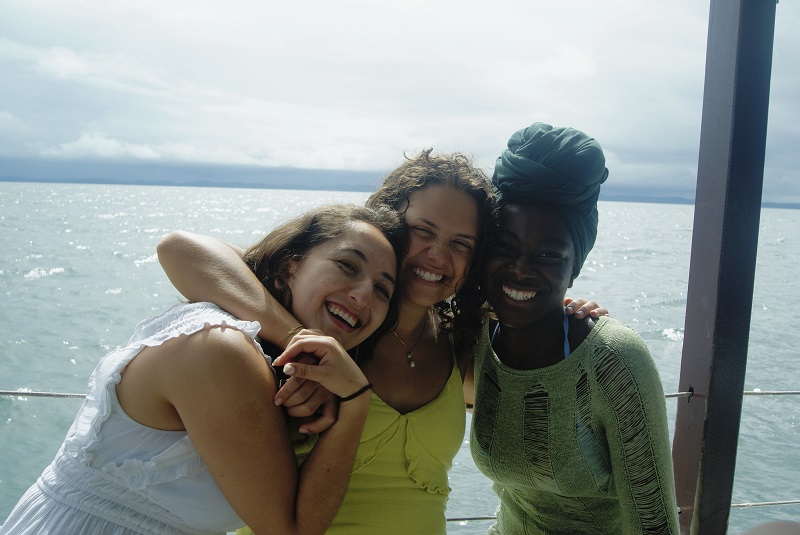Photos taken by Anna Hobbins (Tulane University), Student Correspondent for CET Brazil, Spring 2024
Coming off a one-week solo backpacking trip to Chile, I was beyond excited to embark on CET’s traveling seminar to Salvador, Bahia. I had been told by my Portuguese professor back at Tulane and a handful of Brazilians I had met this semester that Salvador was just like New Orleans. Through a week of activities, cohort bonding, beaching, and vibrant culture and sound, I saw similarities but also a great depth and complexity of African heritage in Salvador that was so impactful for the entire cohort.
Throughout the week, we met with various community-based organizations. We visited the historical spots of the city and hubs of African culture like the Quilombo Kaonge—a settlement for Brazilians of African origin. Through my CET core class, Socially Sustainable Business in Brazil, I analyzed how these organizations worked in the greater economy of Salvador da Bahia and how frameworks of anti-racism and cultural spaces support sustainable growth.
São Joaquim Market
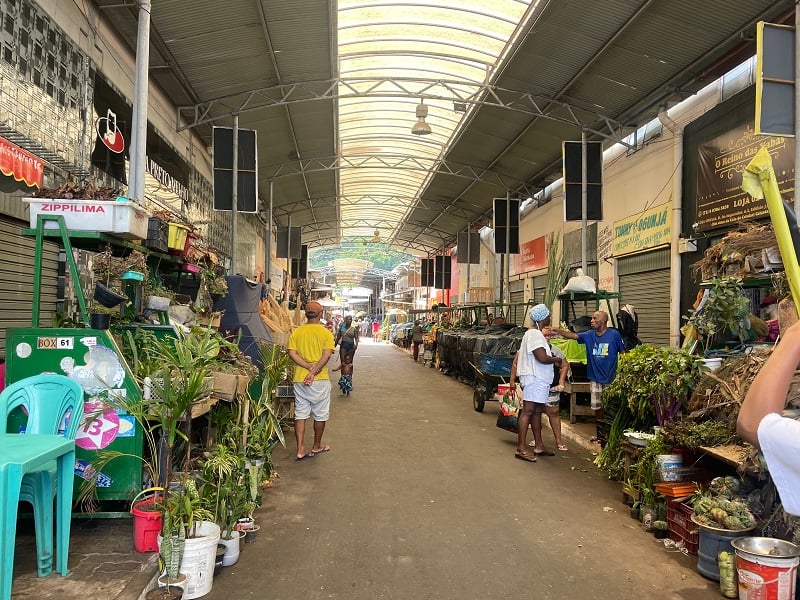
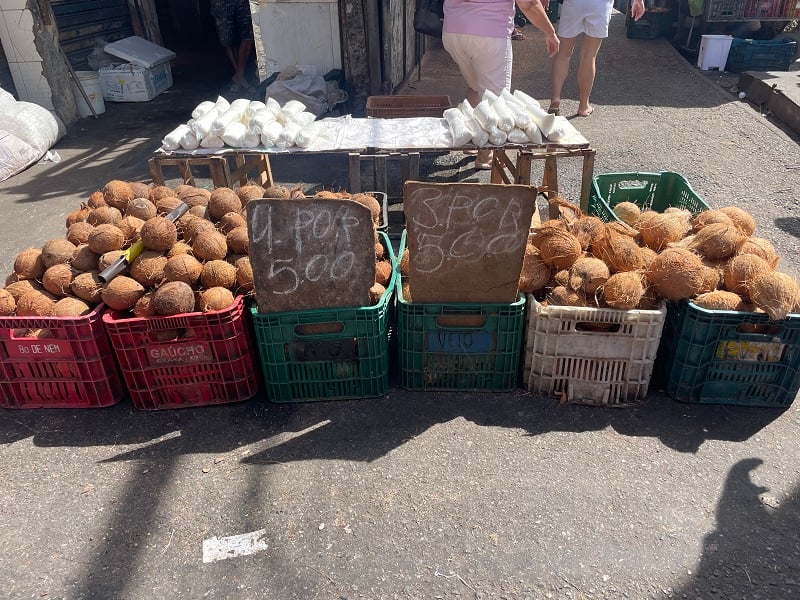
Walking through the São Joaquim Market was a feast for our eyes- full of undiscovered fruits, vegetables, seafood, and herbs important to the candomblé religion practiced by the majority of people in Bahia. Settled on the port, walking through this market, you can find the ingredients to all the best traditional Bahian dishes like acarajé and moqueca, both characterized by their use of dendê oil and seafood from the bay. We watched coconuts be turned into powder for homemade coconut milk. We also learned about the use of beads and herbs to cleanse oneself and honor the orixás of candomblé—a syncretic religion combining African tradition with Catholic beliefs.
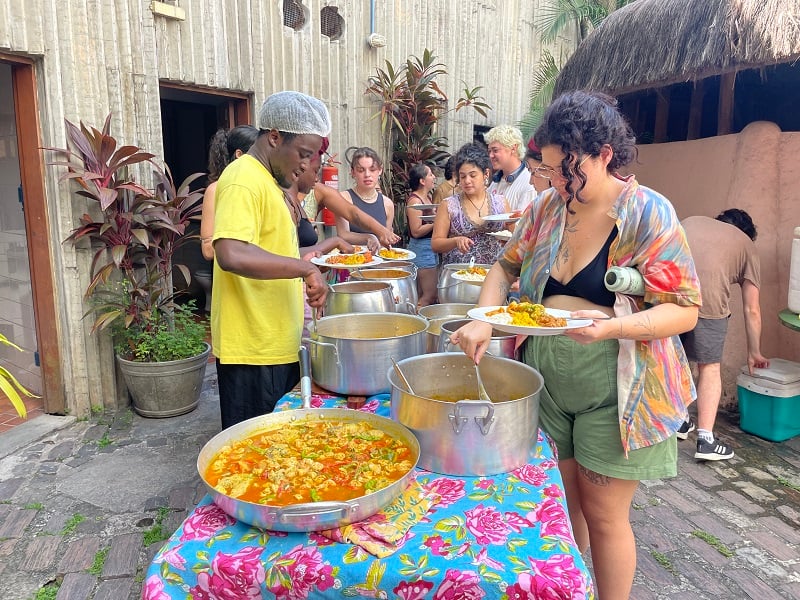
Steve Biko Institute
The next day, we met with leaders and students from the Steve Biko Institute in Salvador, honoring the work of South African anti-apartheid activist and founder of a national black consciousness movement, Steve Biko. Aimed at political training and preparation for black students to gain access to universities and careers, the Steve Biko Institute draws heavily on models of affirmative action and anti-racism to execute their vision through education and appreciation of Black ancestry to reach political and social ascension.
Pelourinho
Traveling across the city into Salvador’s historic center and beating heart of Afro-Brazilian culture, we made it to vibrant Pelourinho. On the cobblestone streets, we heard the drums of Salvador. We also saw colorful dresses, paintings, and leatherworks. Surrounded by Salvador’s history of enslavement, the community highlights Afro-Brazilian traditions proudly.
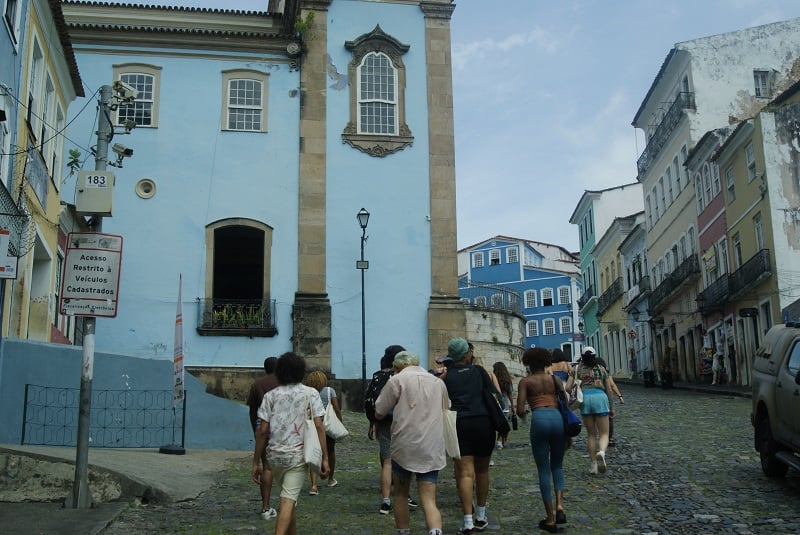
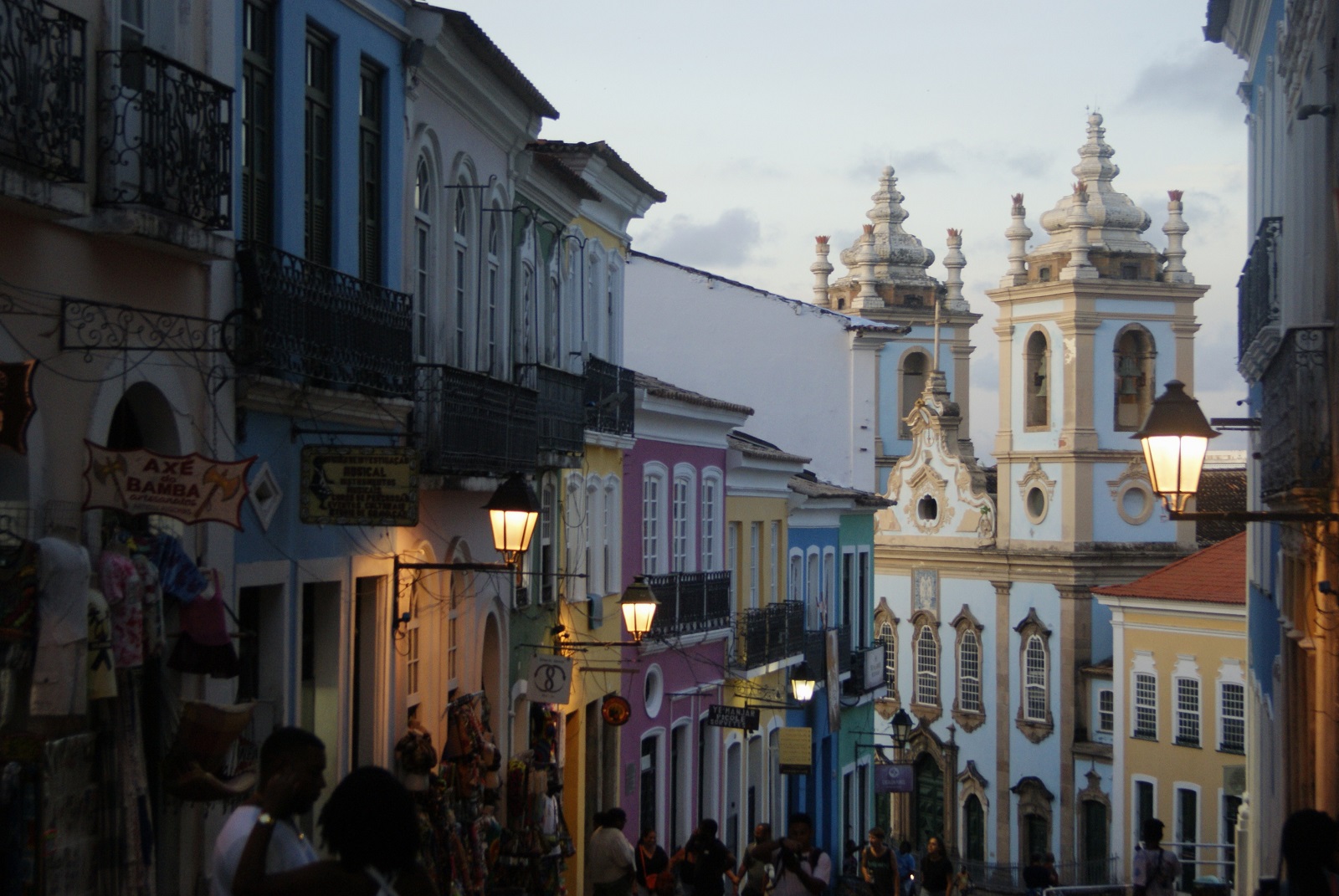
As we walked through the plaza, people practiced capoeira, a martial art. Women wore costumes representing the orixás. We passed by historic buildings like the Igreja de Nossa Senhora do Rosário dos Pretos, a Catholic church using candomblé rites and music.
Capoeira Class
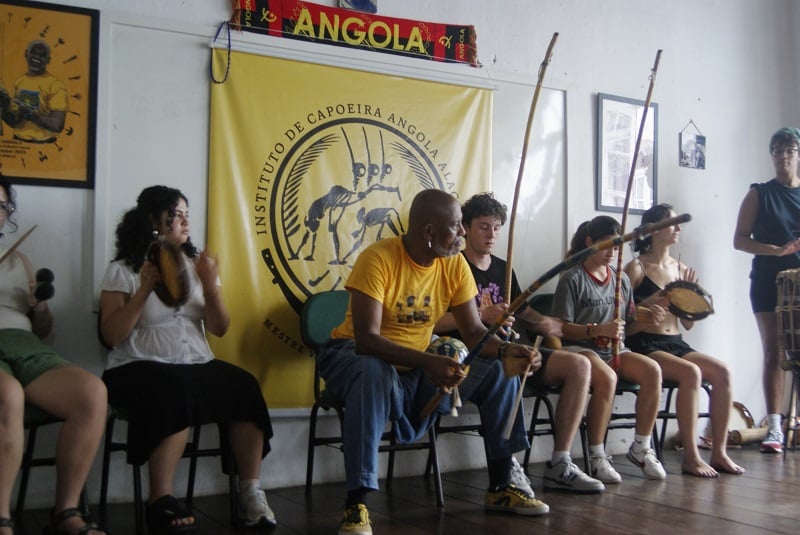
At the end of the day, we went to a capoeira class of our own with Mestre Velmir, a master in Angolan-style capoeira. We learned about how to build trust in our roda, or circle, through experimenting with the traditional instruments of capoeira: a berimbau, agogo, pandero, caxixi, and atabaque. We learned how to build a capoeira chant, how to establish respect with your partner, going beyond capoeira as a martial art but also as a way of life.
Over a week in Salvador, we visited businesses, explored the beach, learned how a quilombo works, spent a day on a sailboat and bonded with the cohort. The week went by so fast, but we were all beyond thankful to have had the chance to bond, learn, and grow together. Now, we look forward to the upcoming trip to Paraty!
